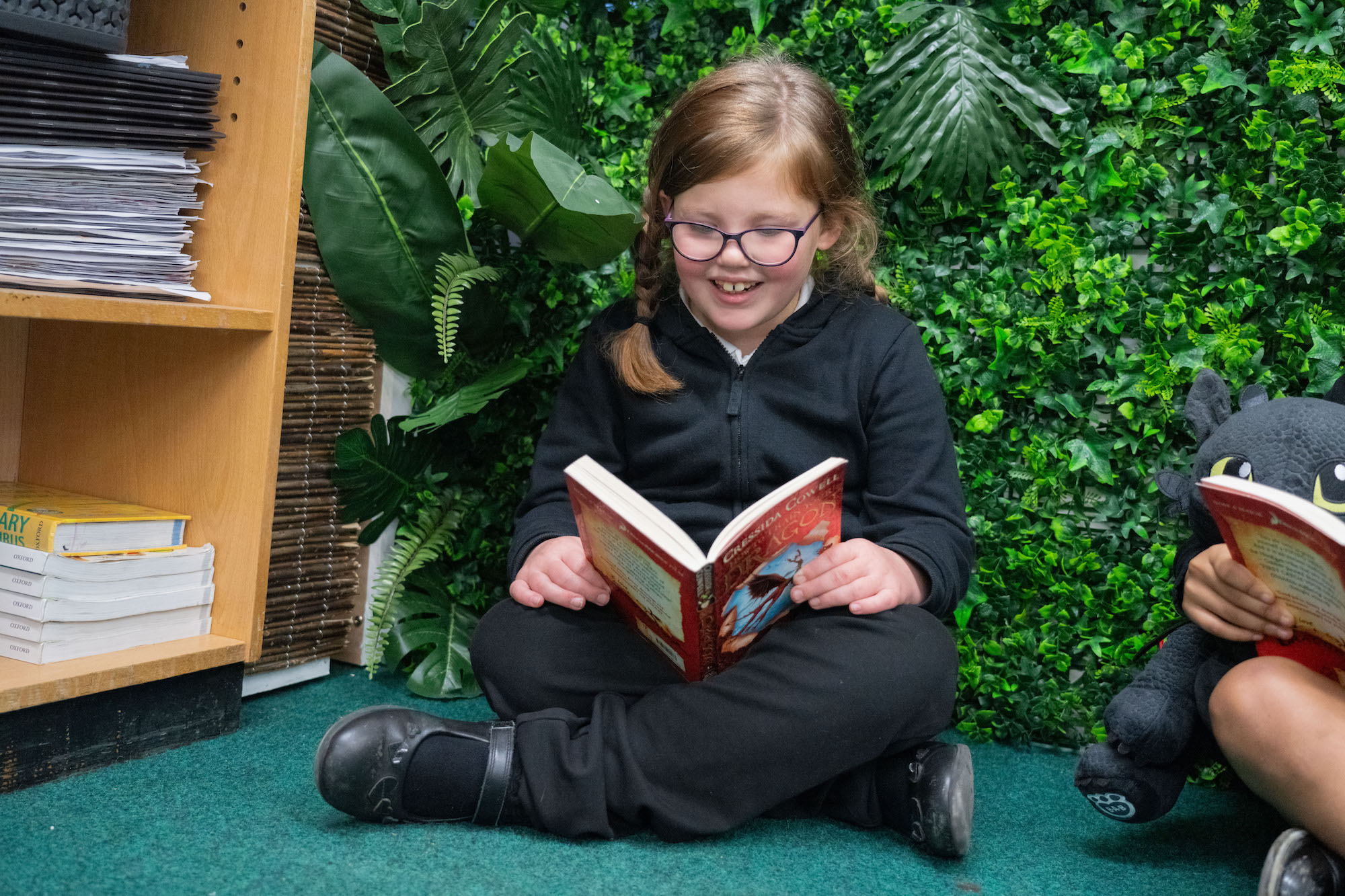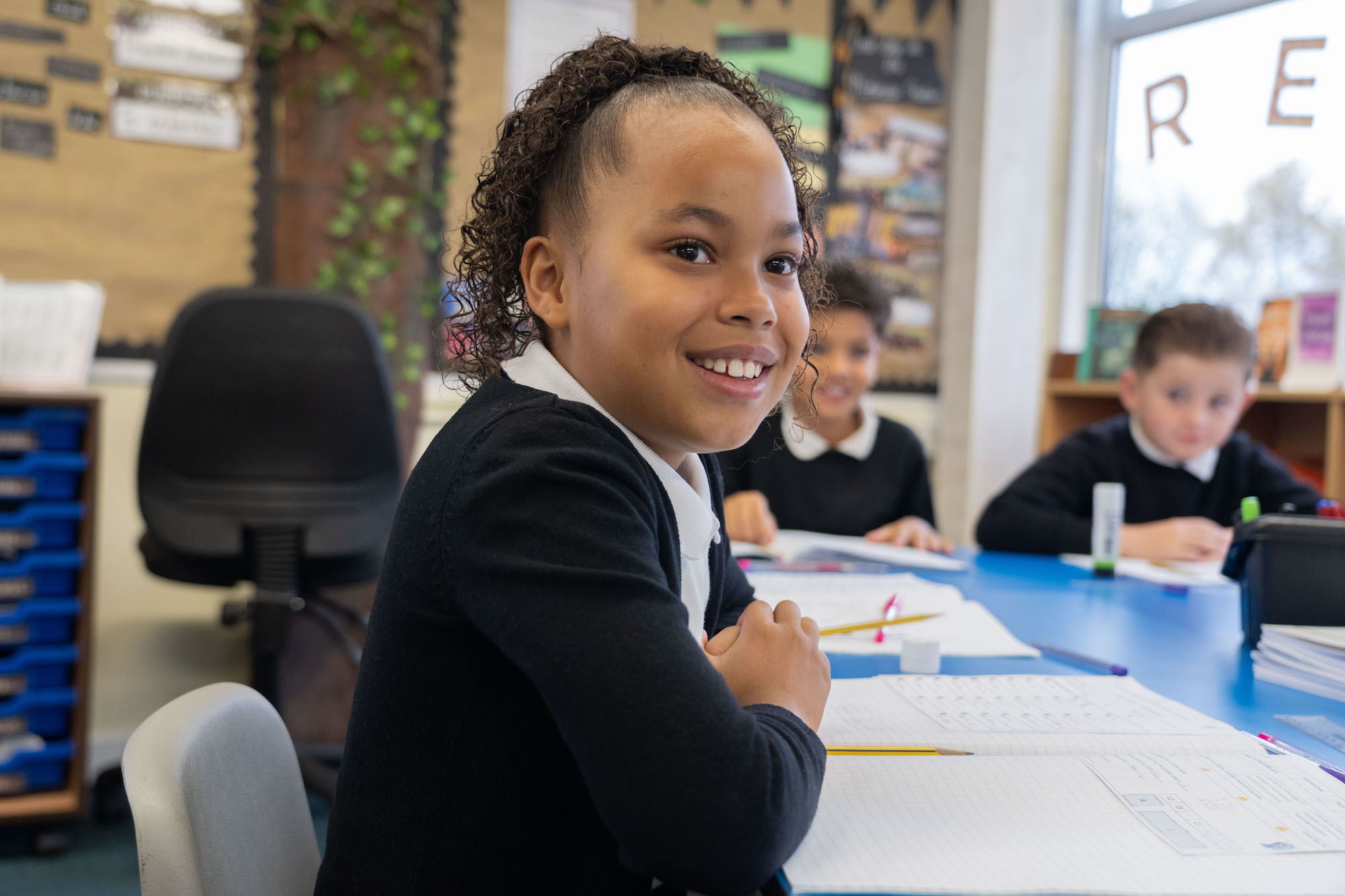Reading
At Bloxwich Academy, we encourage all our children to develop the love of reading. At Bloxwich Academy, all children follow the Bloxwich Academy reading curriculum designed with the belief that no child should fail, and that deprivation is not an excuse for underachievement. We believe in promoting the love of reading buy improving the life experiences and chances of all our pupils.

Overview
At Bloxwich Academy we strive to deliver a no-nonsense approach to teaching reading. We take pride in the fact that our reading structure encompasses all parts of the five components of reading. Using these five components means that the teaching can remain focused on pupils' achievement.
Essential Components of Reading: Comprehension, Fluency, Vocabulary, Phonemic Awarness, Phonics.
Phonics & Intervention
Once a pupil has met the standard of phonics required to leave the RWI programme (L&L), they will enter curriculum reading groups in Y2 – Y6. The guidance shared in this extract is therefore only pertaining to post-phonics teaching.
If a pupil has met the standard of phonics to leave the RWI programme (L&L), but their reading during the curriculum group lessons suggests that there are specific gaps in phonetic knowledge, the class teacher will speak to the phonics lead (Mrs L Watkins) for the child to be assessed again. This may highlight a specific 1-1 or small group intervention to help close these gaps.
Curriculum Group Lessons
Our reading curriculum group lessons follow a 5-day plan like the RWI programme. It has been designed to maximise the opportunity for daily, weekly and monthly review to ensure new vocabulary, concepts and language is encoded into long term memory.
Progression Skills

Overarching Objective
The overarching objective comes from the KS1 and KS2 reading domains.
Shared text focus
The text focus is the route that will be taken during the learning journey with your selected text to meet the learning objective.
Establish meaning by ensuring pupil attentiveness to specific language choices and details given and implied by the author, allowing opportunity to confirm and revise predictions as the read continues.
(This example is for a prediction focus 1e or 2e)
Zoom in on the specific language choices to explore how Shelley paints the main character’s disappointment with his creation.
(This example is for a vocabulary focus 2a/2g).
Activate prior knowledge
Share ideas, unpick vocabulary and concepts that are relevant to the text that the children are reading that week.
Share contextualised timeline with historical events familiar to them and the text. Share the geographical text and /or author throughout the week. Giving children opportunity to complete retrieval practice on all aspects of history and geography.
Layered fluency read
Layered reading is like unlocking the layers of a text one by one. On the first reading, students will learn the main idea and the details: on their second read and third readings, they will get more out of the story and learn more about what the author put into it.
Reading one - Model fluent read and fluency builder grid (2a vocabulary)
Reading two - Echo read, partner and timed read.
Use echo read on a section of the text to model and practice good reading. Children practise this in pairs in partner read. Teacher times themselves reading a part of the text as a storyteller and the children will then try to match this time- this develops their pace of reading and models how to read (2a vocabulary).
Reading three - Gist of the text- who, what, where when and why. (2c summarise main ideas from more than one paragraph).
Text dependent questions - Establishing meaning. These questions are designed to check for understanding and to establish further meaning of the text for the children.
Analysing meaning - Analysing meaning is used to focus the children on specific language choices so they can understand why the author chose to write what they did (2d make inference from the text text/ explain and justify)
Long written response - The final response should comprise of a single question which encompasses all learning so far.


Useful Links
Homework
All children will have been given an aged, related reading book. This book should be read at home at least three times a week- your child will read this book in within the academy to his or her teacher as well. Your child can access GET-Epic- this is an online site, where the child can read a book or read with their parent/guardian.
